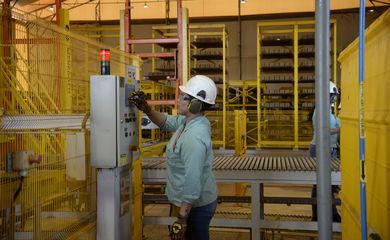January inflation in Brazil at 0.42%, pressured by high food prices

Official inflation in January in Brazil stood at 0.42 percent, primarily driven by the increase in food prices. This level is lower than the 0.56 percent recorded by the Broad National Consumer Price Index (IPCA) in the previous month, December. Over the past 12 months, the index totals 4.51 percent. The data were released on Thursday (Feb. 8) by the government´s statistic agency IBGE.

In January, the food and beverage group, which holds the highest weight in the household consumption basket (21.12%), increased by 1.38 percent. This contributed 0.29 percentage points (p.p.) to the month's IPCA. It marks the largest rise in food and beverage prices for the month since 2016, when the group rose by 2.28 percent.
"Traditionally, food prices increase during the summer months due to climatic factors that impact production, particularly for fresh foods like tubers, roots, vegetables, and fruits. This year, the situation was exacerbated by the presence of El Niño," explained research manager André Almeida.
The researcher also noted that India, the world's largest producer of rice, faced climatic challenges that affected production and reduced exports in the second half of 2023. This led to a decrease in available product for sale and, consequently, higher prices.
Transportation
The transportation group - the second heaviest in the monthly household basket (20.93%) - helped to contain inflation in January. There was deflation, i.e., a decrease in prices, of 0.65 percent. The relief came from a recent culprit, the price of airline tickets. After increasing by 82.03 percent in September, October, November, and December of last year, ticket prices fell by an average of 15.22 percent in January 2024. This was the item that had the largest negative impact on the overall IPCA.
The IPCA is considered the country's official inflation index, used by the Central Bank to monitor the official inflation target. For 2024, the target stands at 3 percent, with a tolerance of 1.5 p.p. above or below. The index calculates the cost of living for families earning between one and 40 minimum wages.
With the January result, the 12-month accumulated figure decreased from 4.62 percent to 4.51 percent. This marks the fourth consecutive month of reduction in this accumulated figure.






